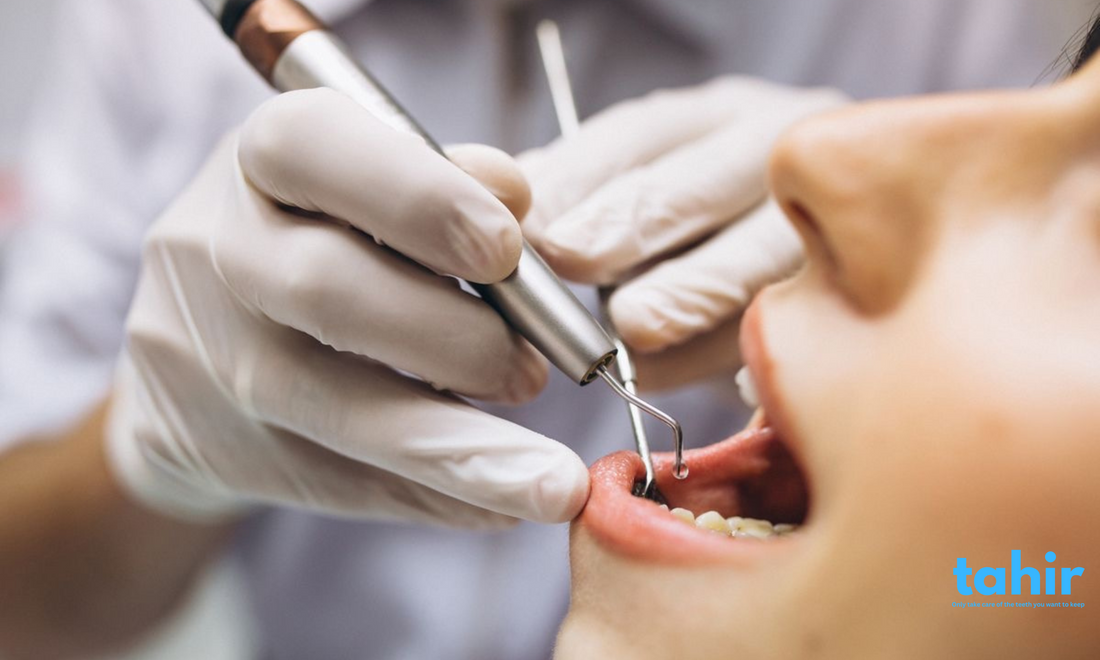
Coming Clean: Can My Dentist Tell How Much I Floss?
We’ve all been there: sitting in the dentist’s chair, waiting for the inevitable question, “Have you been flossing regularly?” Some people scramble to floss a few days before their appointment, hoping to avoid any awkward conversations. But the truth is, even if you manage to squeeze in some last-minute flossing, your dentist can still tell if you’ve been flossing consistently or not.
So, how exactly can your dentist tell? And why is flossing so important in the first place? In this blog, we’ll break down how dentists know if you’ve been flossing, why it’s crucial for your oral health, and tips for making flossing a regular part of your routine.
How Dentists Can Tell if You’ve Been Flossing
Your dentist is trained to spot the subtle (and not-so-subtle) signs that indicate whether or not you’ve been flossing regularly. Here are some of the key things they look for:
1. Bleeding Gums
One of the biggest giveaways that you haven’t been flossing is bleeding gums. If your gums bleed during your dental exam, it’s often a sign of gingivitis, the earliest stage of gum disease. Flossing helps remove plaque and food particles from between your teeth and along the gumline. Without regular flossing, plaque builds up and causes inflammation in the gums, leading to bleeding when your dentist checks your mouth or when you brush.
2. Swollen or Puffy Gums
Healthy gums should be firm and pink. If your gums are swollen, red, or puffy, it’s a sign that they’re irritated from plaque build-up, which usually happens when you don’t floss. Swollen gums are a common sign of inflammation caused by bacteria trapped between the teeth. Dentists can spot this inflammation easily during your check-up.
3. Plaque and Tartar Build-Up
Plaque is a sticky film of bacteria that constantly forms on your teeth. When you floss regularly, you remove plaque from between your teeth before it has a chance to harden into **tartar**. If you haven’t been flossing, plaque can harden into tartar, which is much harder to remove and often requires professional cleaning. Your dentist will be able to see tartar build-up in those hard-to-reach places between your teeth, which is a clear sign of inconsistent flossing.
4. Cavities Between the Teeth
Flossing helps prevent cavities by removing food particles and plaque from between your teeth. When you don’t floss, those areas can develop decay that your dentist will detect during an exam. Cavities that form between the teeth are often a result of poor flossing habits, as toothbrushes alone can’t clean these tight spaces effectively.
5. Bad Breath
Chronic bad breath (halitosis) can be another indicator that you’re not flossing regularly. When food particles get trapped between your teeth, they begin to break down, leading to unpleasant odours. Bacteria in plaque can also produce foul-smelling compounds. If your dentist detects bad breath or notices that you have plaque build-up between your teeth, it’s a sign that your flossing game may be lacking.
Why Flossing Matters
You might be wondering, “Is flossing really that important?” The answer is a resounding yes. While brushing is essential for cleaning the surfaces of your teeth, flossing is the only way to remove plaque and food particles from between your teeth and under the gumline. These areas are where gum disease and cavities often start, so neglecting them can lead to serious oral health issues over time.
Here are a few reasons why flossing should be a daily habit:
- Prevents Gum Disease: Flossing removes the bacteria and plaque that cause gum disease. Without flossing, plaque can irritate your gums, leading to gingivitis and, if untreated, more severe gum disease (periodontitis), which can cause tooth loss.
- Reduces Your Risk of Cavities: Plaque build-up between the teeth can erode tooth enamel and lead to cavities. Flossing keeps these areas clean and helps protect your teeth from decay.
- Keeps Your Breath Fresh: By removing trapped food particles and bacteria, flossing can help keep your breath fresher for longer.
- **Maintains Overall Health**: Good oral hygiene, including flossing, has been linked to better overall health. Poor oral health has been associated with heart disease, diabetes, and other health conditions, making flossing an important part of a healthy lifestyle.
Tips for Building a Flossing Routine
If flossing isn’t already part of your daily routine, it’s never too late to start. Here are some tips to make flossing easier and more enjoyable:
1. Choose the Right Tools
There are many flossing tools available to suit your needs. If traditional floss feels too tricky, you can use **floss picks**, **interdental brushes**, or **water flossers** to clean between your teeth. In the UK, you can find these products at your local pharmacy or supermarket.
2. Floss Once a Day
The NHS recommends flossing at least once a day. It doesn’t matter if you floss in the morning or evening — what’s important is consistency. Try flossing at the same time each day to build the habit.
3. Make It Part of Your Routine
Keep floss near your toothbrush as a visual reminder to floss daily. Pairing flossing with another habit, like brushing or washing your face, can help make it a regular part of your routine.
4. Be Gentle
Conclusion
Yes, your dentist can tell if you’ve been flossing! But more importantly, flossing is essential for maintaining healthy teeth and gums and preventing serious oral health issues down the line. Incorporating flossing into your daily routine may seem like a small step, but it can have a big impact on your oral health.
